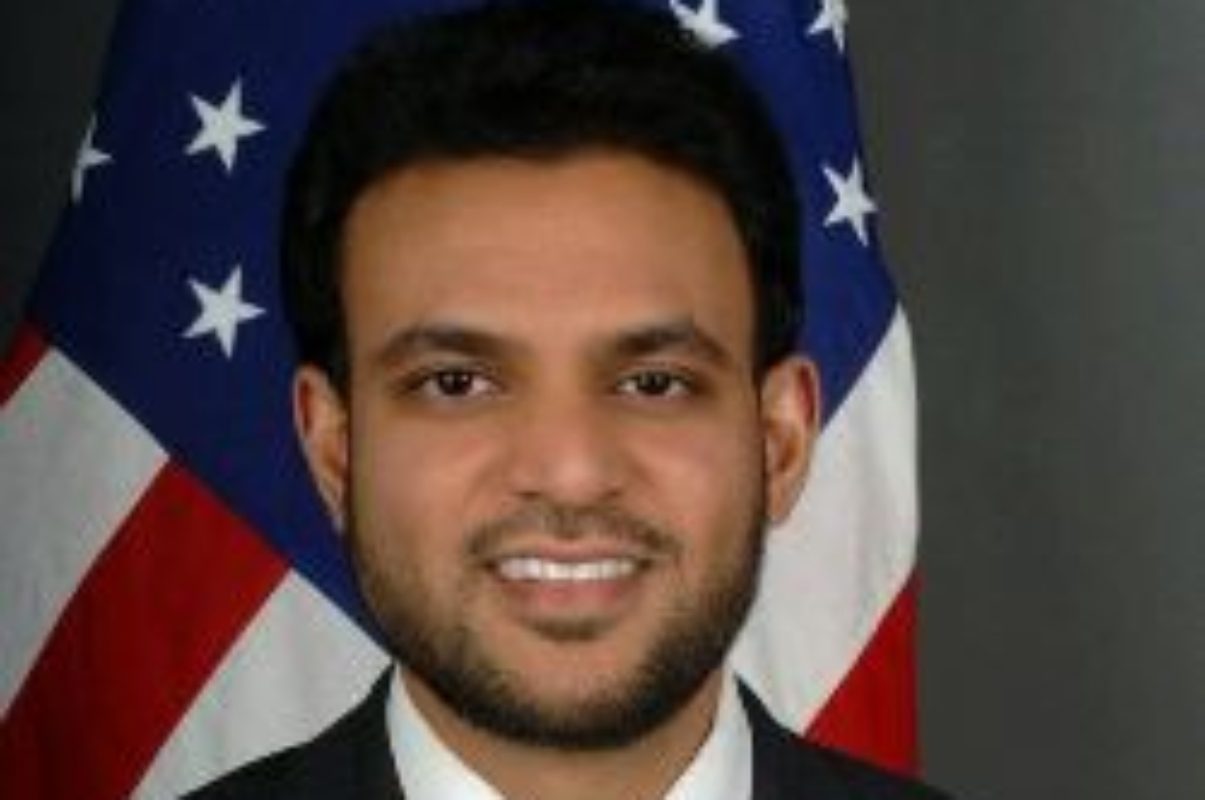
Rashad Hussain
The Southern Baptist Ethics & Religious Liberty Commission (ERLC) commended President Joe Biden’s proposed filling of a vital executive branch post in the effort to protect people of faith around the world.
Biden announced July 30 the nomination of Rashad Hussain as ambassador-at-large for international religious freedom. If confirmed by the U.S. Senate, Hussain – director for partnerships and global engagement at the National Security Council – will be the first Muslim to serve in the position since it was created in 1998 as part of the International Religious Freedom Act.
The action came as the ERLC and other religious freedom advocates are urging the U.S. House of Representatives to approve legislation to combat China’s genocidal campaign against Uyghur Muslims in the western part of the country. The U.S. Senate passed July 14 the Uyghur Forced Labor Prevention Act, which would prohibit products made with forced labor in the Xinjiang Uyghur Autonomous Region from being introduced into the American market. The House passed a similar bill nearly unanimously last September before the measure died in the Senate.
Messengers to the Southern Baptist Convention’s (SBC) annual meeting adopted a resolution June 15 that condemned the Chinese Community Party’s treatment of the Uyghurs and called for the U.S. government to take “concrete actions” to end the genocide. The SBC reportedly became the first Christian denomination to denounce China’s campaign against the Uyghurs as genocide.
“One need only take a brief survey of the globe to see how religious freedom is under assault in multiple countries,” ERLC’s Brent Leatherwood said in written comments. “We have long called for America to be a bold voice for liberty against these oppressive regimes. Taking steps such as passing the Uyghur Forced Labor Prevention Act … helps us project that voice.
“Similarly, naming a U.S. ambassador-at-large for international religious freedom helps us to consistently use that voice,” said Leatherwood, ERLC’s vice president of external affairs and chief of staff. “We appreciate the Biden administration prioritizing this appointment, and we stand ready to work with Mr. Hussain upon his confirmation to advance the fundamental human right of religious freedom internationally.”
The ambassador-at-large serves as the primary adviser to the secretary of state regarding global religious liberty and also advises the president. He supervises the State Department’s office of international religious freedom. If confirmed, Hussain will become the sixth person to fill the post since it was established 23 years ago. Sam Brownback, the previous ambassador-at-large, served during the last three years of the Trump administration.
Biden also nominated Deborah Lipstadt as the special envoy to monitor and combat anti-Semitism. The Senate must confirm Lipstadt, professor of modern Jewish history and Holocaust studies at Emory University in Atlanta. She also was the founding director of the Institute for Jewish Studies at Emory. She would become the fifth special envoy since Congress established the anti-Semitism position in 2004. A law elevating the post to the level of an ambassador was enacted in January of this year.
In addition, the president appointed two members to the U.S. Commission on International Religious Freedom (USCIRF): Khizr Khan, founder of the Constitution Literacy and National Unity Project, and Sharon Kleinbaum, rabbi of Congregation Beit Simchat Torah in New York City.
USCIRF, a bipartisan, nine-member commission, and the Religious Freedom Institute (RFI) applauded the nominations of Hussain and Lipstadt.
USCIRF’s commissioners “look forward to working closely with Rashad Hussain and Dr. Deborah Lipstadt, once confirmed, to develop new ways for the United States to promote the freedom of religion or belief around the world,” said Nadine Maenza, the commission’s chair, in a news release. “Global religious freedom violations continue to be a pervasive threat to our national security and global stability.”
The ambassador-at-large and special envoy “play an essential role in U.S. efforts to counter that threat,” she said.
Thomas Farr, RFI’s president, said his organization offered to the Biden administration in January its policy recommendations for global religious liberty, including the qualifications for a productive ambassador-at-large.
Hussain “admirably meets these standards,” Farr said in a written statement. “If America fails to defend the precious right of religious freedom – historically understood in our nation as the ‘first freedom’ – who else will defend it?”
During the Obama administration, Hussain served as special envoy to the Organization of Islamic Cooperation and special envoy for strategic counterterrorism communications.
Khan, a Muslim, is a lawyer and author whose son, U.S. Army Captain Humayun Khan, was killed in 2004 while serving in Iraq and received the Bronze Star with valor.
Kleinbaum – who was appointed by Senate Majority Leader Charles Schumer to a previous USCIRF term – has led her congregation to “become a powerful voice in the movement for equality and justice for people of all sexual orientations, gender identities, and expressions,” according to the congregation’s website. In addition to her advocacy for lesbian, gay, bisexual, transgender and queer (LGBTQ) rights, she is in a same-sex marriage to Randi Weingarten, president of the American Federation of Teachers.
R. Albert Mohler Jr. president of Southern Baptist Theological Seminary, questioned on his podcast Aug. 3 whether Kleinbaum would protect religious freedom in a clash with LGBTQ rights.
“Given her well-documented activism and her position on these issues, it’s very unlikely that this rabbi would support religious liberty when it comes to something like the threat of the Equality Act inside the United States, much less around the world, where the United States under the State Department of the Biden administration is putting pressure on nations all over the world to adopt the basic understanding of the LGBTQ revolution,” Mohler said, according to a transcript of “The Briefing.”
The House of Representatives passed the Equality Act in February, but the Senate has yet to act on it. The bill is a far-reaching gay and transgender rights proposal that opponents warn would have calamitous effects on freedom of religion and conscience, as well as protections for women, girls and unborn children.
Khan and Kleinbaum replaced Trump appointees Gary Bauer and Johnnie Moore on USCIRF.
USCIRF, which is made up of nine commissioners selected by the president and congressional leaders, tracks the status of religious liberty worldwide and issues reports to Congress, the president and the State Department.
(EDITOR’S NOTE – Tom Strode is Washington bureau chief for Baptist Press.)


